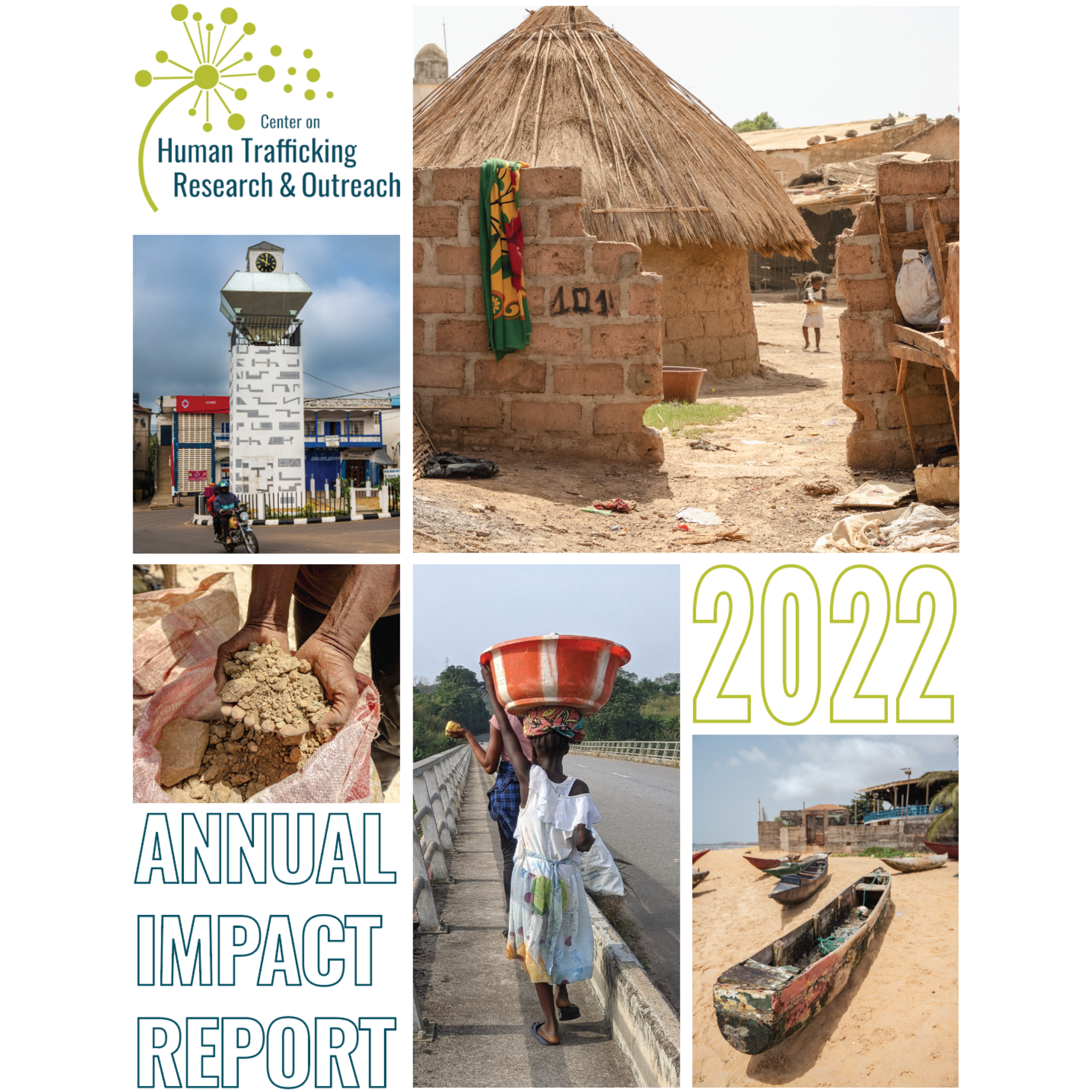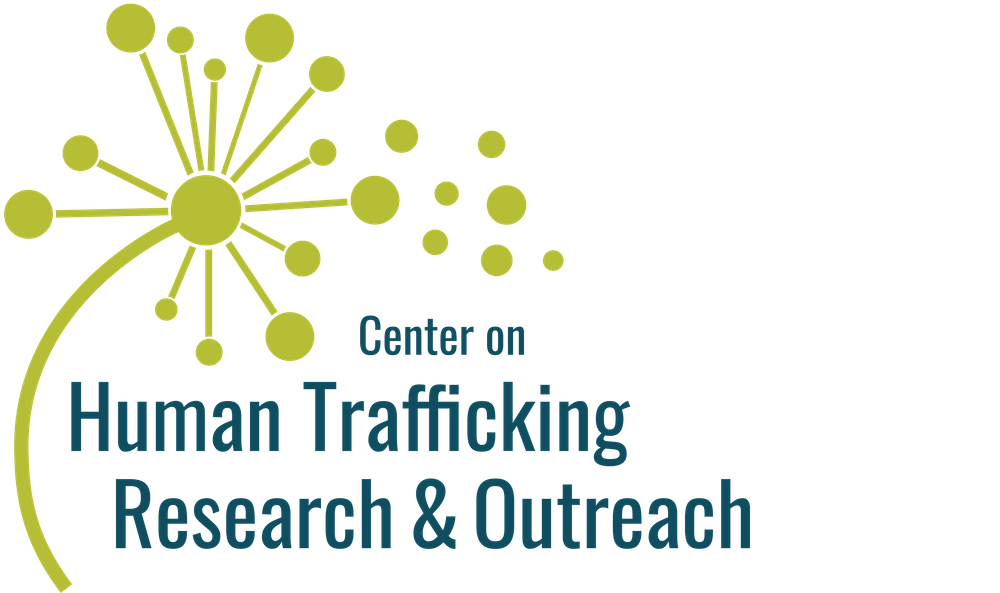
A LETTER FROM THE DIRECTOR |
||
|
Human trafficking is a global scourge that clutches millions of people in its grasp.
It affects every country, with devastating effects on individuals, families, and communities.
At the University of Georgia’s Center on Human Trafficking Research & Outreach, we
rise every day to meet this challenge, encouraged by the mission we have set forth—to
reduce human trafficking through research, programs, and policies. |
 Download the Report |
|
|
Our 2022 Annual Impact Report abounds with evidence of our efforts to meet our mission through collective efforts
with researchers, governments, survivors, community leaders, and non-government actors. Survivors have been reunited with their families. We’ve also begun to expand our scope by strengthening cross-border institutional collaboration in the West African region, and planning new research and programs on labor trafficking in Malawi and Zambia. CenHTRO is making an impact that, I will reiterate, is underpinned by rigorous science. We count ourselves among elite global organizations dedicated to advancing and standardizing human trafficking research. Our projects in six countries across Africa, Asia, and Latin America, featuring the world’s preeminent prevalence estimation researchers, are improving the science of how we measure and understand human trafficking in its various international contexts. In Georgia, we’re producing impact as well, from funding projects that will improve outcomes for survivors to training the next generation of researchers and program specialists. Our team members also serve on various local, national, and international boards and committees on human trafficking. This progress, I must note, is attained only through the principle of collaboration and the spirit of partnership. With that in mind, I must offer deep thanks to our funder, the U.S. Department of State Office to Monitor and Combat Trafficking in Persons. We must continue to assemble all sectors of society—from the village to the boardroom—to
combat this scourge. This includes you! Your involvement is necessary if we are to
end human trafficking. Only by working together can we achieve such a necessary goal. |
||
